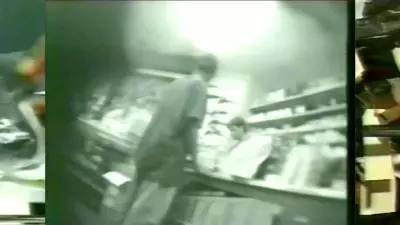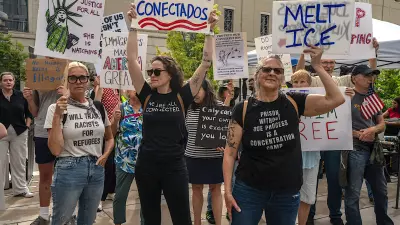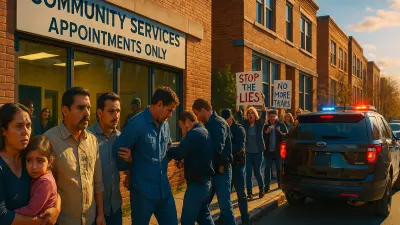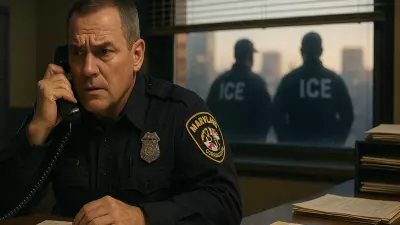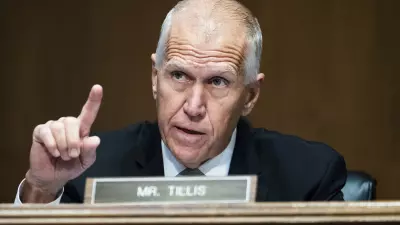ProPublica is a nonprofit newsroom that investigates abuses of power. Sign up for Dispatches, a newsletter that spotlights wrongdoing around the country, to receive our stories in your inbox every week.

Twenty-five years ago, Scott King, then mayor of Gary, Indiana, spoke solemnly as he described a new strategy the city was taking to deal with the flow of illegally purchased guns fueling violent crime there.
Undercover Gary police officers had fanned out across the area for Operation Hollowpoint, successfully purchasing guns and ammunition at federally licensed firearm retailers despite representing themselves as suspicious buyers. King presented surveillance footage in an 18-minute video produced by the city.
Inside one pawn shop, a bespectacled clerk and two undercover police officers are shown discussing a 9 mm pistol. After the male officer admitted he did not have the permit required to buy the gun, the female officer accompanying him told the clerk she did. The clerk then suggested she buy the gun on her partner’s behalf in violation of federal gun restrictions.
“Might as well put it in your name then so I don’t have to make a call,” the clerk responded. “The feds are constantly screwing with people.”
The footage, which documented four suspicious purchases at different retailers selling guns, showed “how easy juveniles, felons and other prohibited purchasers can acquire guns from legitimate gun dealers through the use of a straw purchaser,” King said in the video.
The stings formed the basis of the city’s historic lawsuit seeking to hold local gun retailers and major gun manufacturers, such as Smith & Wesson, Glock and others, responsible for illegal sales like those uncovered in the investigation. As part of the suit, the city sought monetary damages and changes in industry practices.
Relentless legislative and legal efforts across the country have eliminated a flurry of lawsuits initiated by cities against the industry two decades ago. A bill approved by the Indiana legislature and signed into law this month by Gov. Eric Holcomb may be the final blow to Gary’s suit, the last one standing from that original group of cases.
But the problem of illicit gun sales outlined by King and detailed in that grainy footage remains and continues to contribute to violence in northwest Indiana, nearby Chicago and beyond.
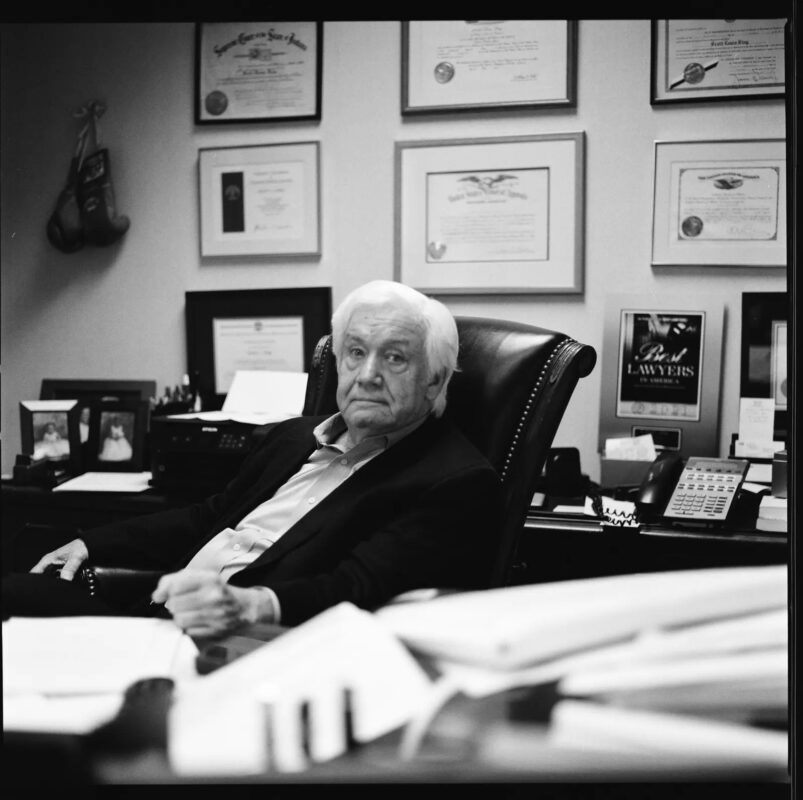
Over the years, Gary’s lawyers have sought to keep the suit going by arguing that negligence plagues the firearms industry, not just in the city but across the region, creating an ongoing public nuisance. To emphasize that point in court filings, they’ve included long lists of federal indictments of gun traffickers and their ties to illegal purchases at northwest Indiana retailers.
Combing through the suit’s voluminous records, ProPublica found and then analyzed over 100 separate criminal cases involving straw sales — transactions where suspects participated in schemes to buy guns from federally licensed retailers and resell them to people barred by law from purchasing guns themselves.
The federal gun cases represent a small but illustrative sampling of the nation’s illegal gun trade, whose contours are well known to law enforcement but shrouded in mystery to the public because of industry-backed laws that keep a tight lid on data involving illicit gun sales.
Some of the cases examined by ProPublica involve just one transaction for a single firearm. Others are part of elaborate and organized schemes, where prolific traffickers use others with clean records to purchase multiple guns from one retailer, then head to the next gun shop and repeat the process over and over again. Most can be tied back to at least one northwest Indiana gun retailer.
One of the cases involves three guns purchased in 2020 that ended up in the hands of a wanted fugitive. He later turned one of those pistols on two police officers in Wisconsin, seriously injuring both. “I knew that at some point I may die that night,” one officer later testified.
But just as those examples showcase the scope of the straw sale problem in the United States, the vigorous effort by the firearms industry to quash the suit shows its commitment to the push back against stepped-up regulation and legal threats.
The defendants have countered Gary’s claims at every turn, arguing that manufacturers have no part in the illegal gun trade and denying responsibility for criminal acts committed by buyers. In a 2000 joint response to the city’s allegations, attorneys for the defendants wrote that after manufacturers sell firearms to licensed retailers, they have no control over “the subsequent negligent or unlawful transfer, possession, ‘availability’ or use of firearms.”
In 2021, after years of legal wrangling, the Gary suit reached a crucial stage. The Lake County, Indiana, judge overseeing it ordered the sides to finalize agreements for turning over thousands of pages of internal records as part of a legal process known as discovery.
Gary’s attorneys have for years sought those documents as they try to prove that manufacturers are aware of the straw sales occurring at the Indiana retailers they supply. But the discovery process might never be completed, now that the Indiana legislature has passed a bill making the Gary lawsuit and any like it illegal. The intent of legislators was clear: The law was made retroactive to Aug. 27, 1999 — three days before Gary filed its lawsuit.

The legislative maneuver, and explanations for it, have frustrated the current mayor of Gary, Eddie Melton. Some proponents of the bill suggested that for as long as the lawsuit was allowed to continue, the firearms industry would pass over Indiana to do business in other states.
“I’ve looked at that as a slap in the face in terms of the law, the lives that have been lost and the reason that the city has been fighting this fight for so long,” he said in an interview. “We just want that fair day in court.”
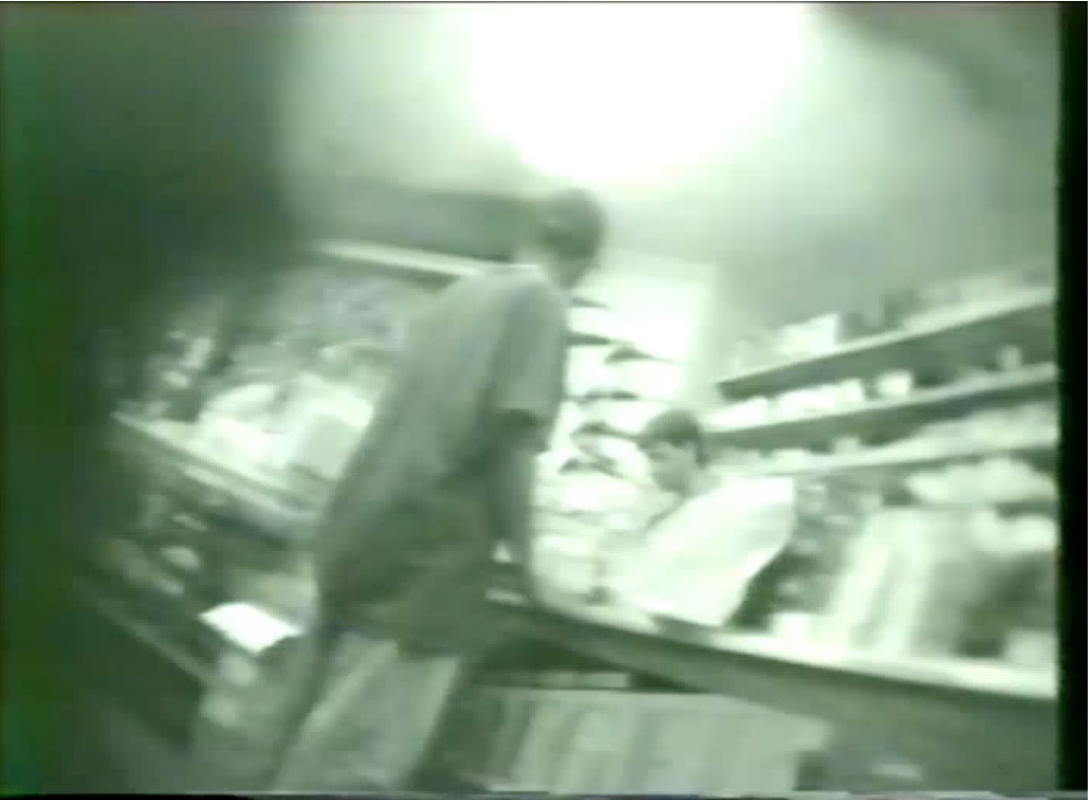
In February, Melton arrived at the state Capitol with the political fight over the gun industry bill in full swing. The legislation targeted the Gary lawsuit directly by restricting the power to bring such action to the Indiana attorney general. The House had passed its version just days before, and the Senate began its deliberations.
Melton, himself a former state senator, strode to a podium inside a meeting room at the Statehouse and made his pitch. “I’m asking you to think about what kind of precedent this will set,” he said. “Local governments have the right to fight back against bad actors. What message will this send across our state and nation if Indiana were to pass a bill that allows the state to inject itself in an active lawsuit and effectively eliminate this right?”
Aaron Freeman, a Republican and one of the bill’s chief backers, was unmoved. The power of such legal action should, as the bill dictates, rest in the hands of the state’s attorney general, he said.
“This one is out of bounds,” he said of Gary’s lawsuit. “It’s a 25-year-old situation. There’s other municipalities that could do this, and I think only the state of Indiana should.”
The Senate eventually passed the bill by a vote of 33 to 15, along party lines.
More than two decades ago, when its suit was filed, Gary joined a wave of American cities that included Detroit and Chicago seeking solutions to gun violence problems through legal action. Under pressure, the firearms industry then turned to its political allies for relief.
In 2003, Congress passed a law known as the Tiahrt Amendment, which prevents the Bureau of Alcohol, Tobacco, Firearms and Explosives from publicly releasing information identifying the retailers who originally sold guns confiscated by police during criminal investigations.
Two years later, Congress passed the Protection of Lawful Commerce in Arms Act, which radically altered the nation’s relationship with guns. It gave manufacturers and retailers broad protections against civil litigation. Following passage of the act, lawsuits against the industry began to crumble.
In 2015, the Indiana legislature passed its own law granting additional protections to firearm manufacturers, dealers and retailers. After then-Gov. Mike Pence signed the bill into law, defendants in the Gary suit all moved to have the case thrown out.
But an appeals court ruled that the city’s suit could proceed via a narrow exception in the law. The straw sales documented by the city provided sufficient basis for a nuisance lawsuit, the court ruled.
The reprieve freed Gary to continue pursuing financial damages for the unlawful sales and to make a case that manufacturers had turned a blind eye to the deadly problem. Since then, Gary’s attorneys have sought tightly guarded industry documents, including any internal studies or reports monitoring how guns are used or if they’re involved in shootings and plans for how products are marketed.
In September 2021, the case reached a milestone that similar lawsuits had not, as the presiding judge set a final date to complete the discovery phase. With the passage of the bill, signed into law on March 15 by Holcomb, attorneys for the city expect that process to come to a standstill.
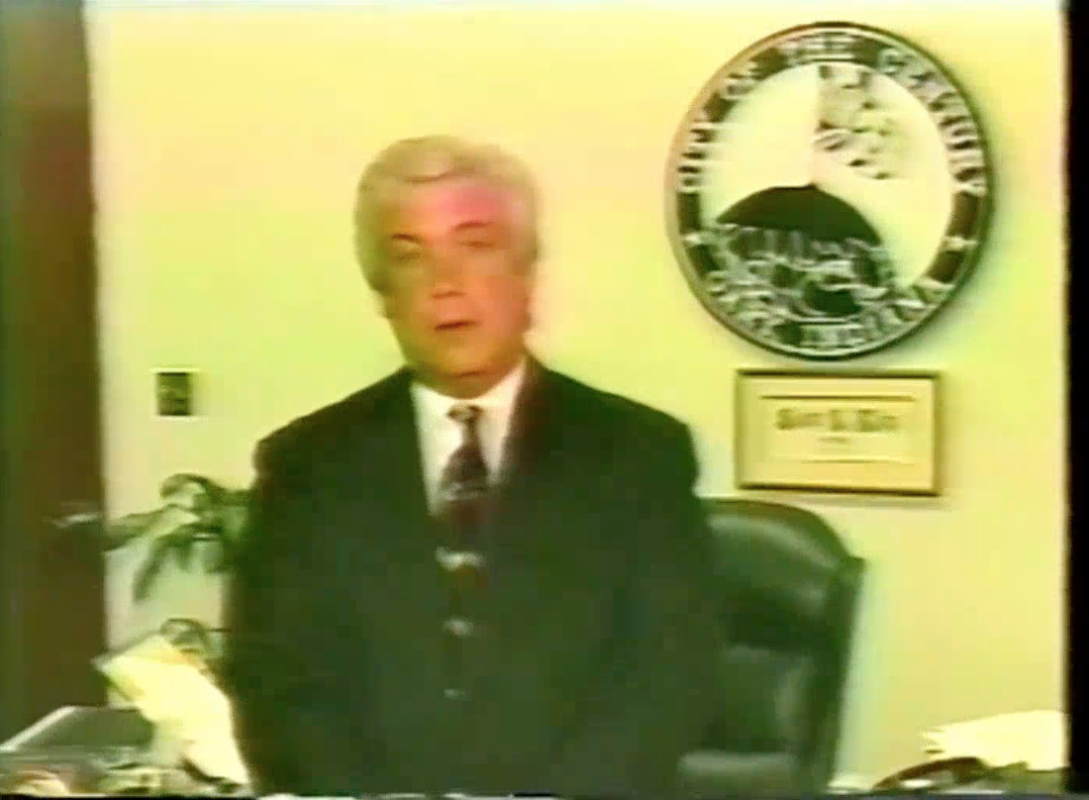
King, the former mayor, no longer remembers even making the video on Operation Hollowpoint, but he still recalls the immediate pushback from the industry and Indiana politicians. To him, the latest effort to kill the suit is a testament to the influence of the firearms industry, which he said has for years pushed Indiana’s lawmakers toward “meddling in the operation of local government.”
“I don’t think there’s too many legislators whose first thought after jumping out of bed in the morning is: ‘What can I do to make it easier for more people to get guns?’” he said. “I think their motivation in many circumstances is from who’s lobbying, and unfortunately those lobbyists have proven more effective than lobbies on behalf of local government, people in cities and towns throughout the state, that are the first line that have to deal with the reality of this violence.”
Financial disclosure records reveal that the National Shooting Sports Foundation, which conducts political lobbying on behalf of the firearms industry, began ramping up its work at the state legislature last year.
The group spent around $143,000 on lobbying efforts in 2023, a huge uptick from previous years. The bill aimed at killing Gary’s lawsuit was authored by Rep. Chris Jeter, a Republican who was an attorney at the law firm that handled lobbying for the NSSF until 2015.
Jeter said no one at the law firm approached him about the measure.
The bill had another backer in Attorney General Todd Rokita, who once it went into effect became the only official in the state with the power to sue the gun industry.
As the bill began to wind its way through the Indiana Statehouse in January, Rokita, a champion of gun ownership rights, was in Las Vegas for an NSSF trade show. Speaking in an on-camera interview with one of the group’s top officials, Rokita made clear he has little intention of ever filing a suit like the one out of Gary.
“That’s not gonna happen on my watch,” he said.
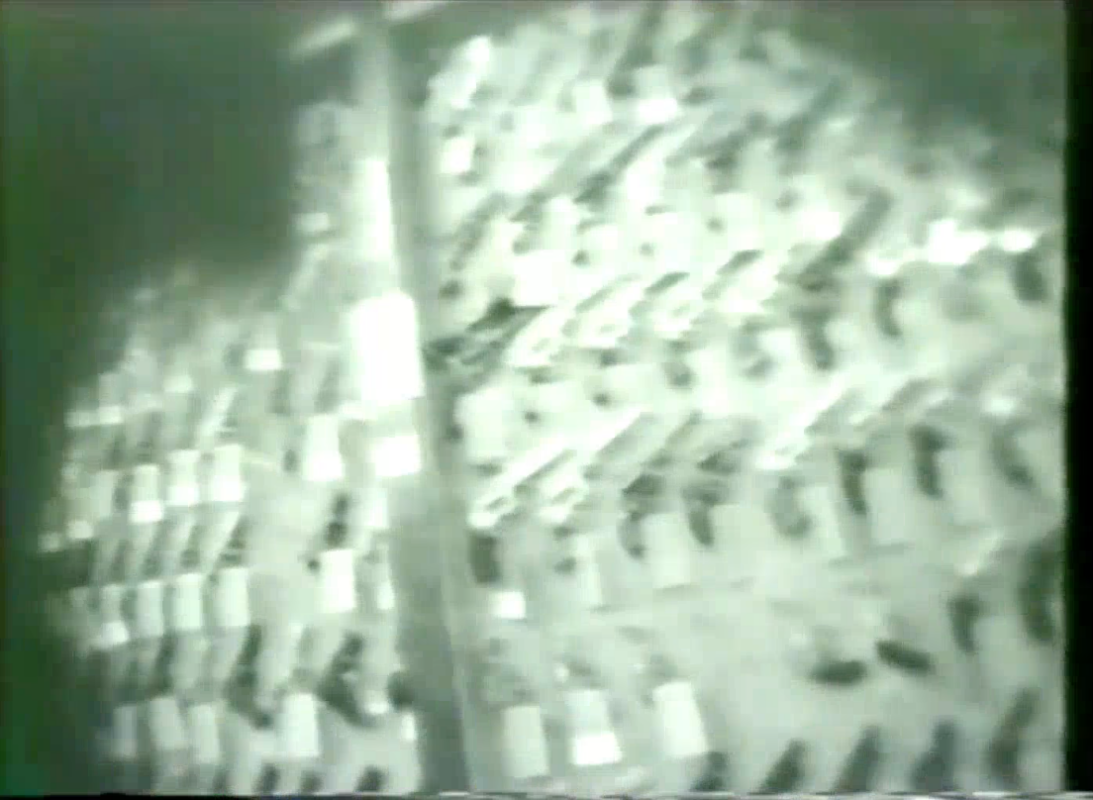
The gun cases cited in the Gary suit and examined by ProPublica provide a chilling tour of illegal activity and crime in the region and beyond.
Take for instance, the case of Nathanael Benton, who was on the run in 2020 when he fired on police officers in Wisconsin. He had already shot a man in Fargo, North Dakota, in an argument over money, as he’d later admit during his trial, and had gotten rid of the gun he used in that shooting. Arriving in Indiana with police on his tail, Benton decided to obtain another one.
As a convicted felon, Benton couldn’t buy a gun for himself from a licensed dealer. So, after fleeing to Indiana to lay low, he got a friend’s estranged girlfriend to make the purchases.
Surveillance video taken from a now-shuttered gun retailer in Warsaw, Indiana, shows Benton’s friend appearing to steer the woman toward particular firearms to purchase. Later, the pair approached a car with two handguns — a Taurus .380 and Smith & Wesson .40 — and then handed the firearms through the car’s rear window to Benton. On the required federal form asking if she was purchasing the guns for herself, the woman checked “yes,” court records state.
That same day, Benton and his accomplices traveled to ADT Firearms, a tiny gun shop in Syracuse, Indiana, run out of the basement of the owner’s home. Anthony Tilson, the owner, told ProPublica that he remembered showing a man and a woman several guns before they finally settled on a Smith & Wesson 9 mm pistol.
Watching the two as they browsed, Tilson said, he felt uneasy. But the woman was familiar, a previous customer, Tilson said. And so he went through with the sale.
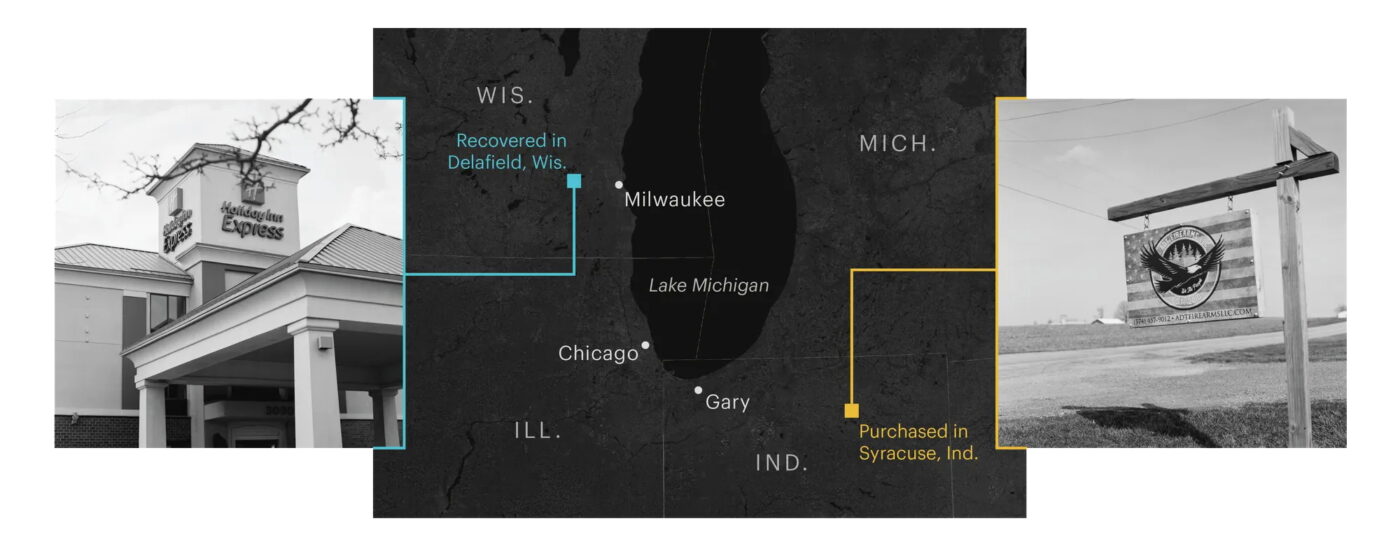
Two days later, outside a hotel in Delafield, Wisconsin, two police officers detained Benton as part of an investigation into a hit-and-run accident. As one of the officers frisked him, Benton pulled the Smith & Wesson .40 from his waistband and began firing, according to court testimony and other records.
Bullets hit one officer in the pelvis. The other officer was struck three times — two bullets hitting his back, while another struck him in the pelvis and pierced his abdomen, causing severe internal damage that forced him to undergo four separate surgeries. At Benton’s trial, the officer testified that the bulletproof vest stopped two of the bullets that struck him, saving him from additional injuries. Both men have left law enforcement.
Benton fled the hotel but was captured at 11 on the morning following the shooting, eight hours from when officers first confronted him, following a massive police search. He was later tried and convicted on multiple charges, including attempted murder and reckless use of a dangerous weapon.
Tilson found out about the Wisconsin shooting from a newspaper article. The 9 mm Smith & Wesson pistol Benton’s friends had purchased at ADT had been recovered at the scene.
“I couldn’t believe it,” Tilson said.
Police eventually arrested the Indiana woman Benton paid to buy guns for him. She was found guilty of one count of providing false information during the purchase of a firearm, and after a year in federal prison she was released for time served.
Tilson said that if given a second chance he would have trusted his instincts and rejected the sale. But to Tilson, retailers like himself should not be held liable for straw sales.
“We cannot control what somebody else does,” he said.
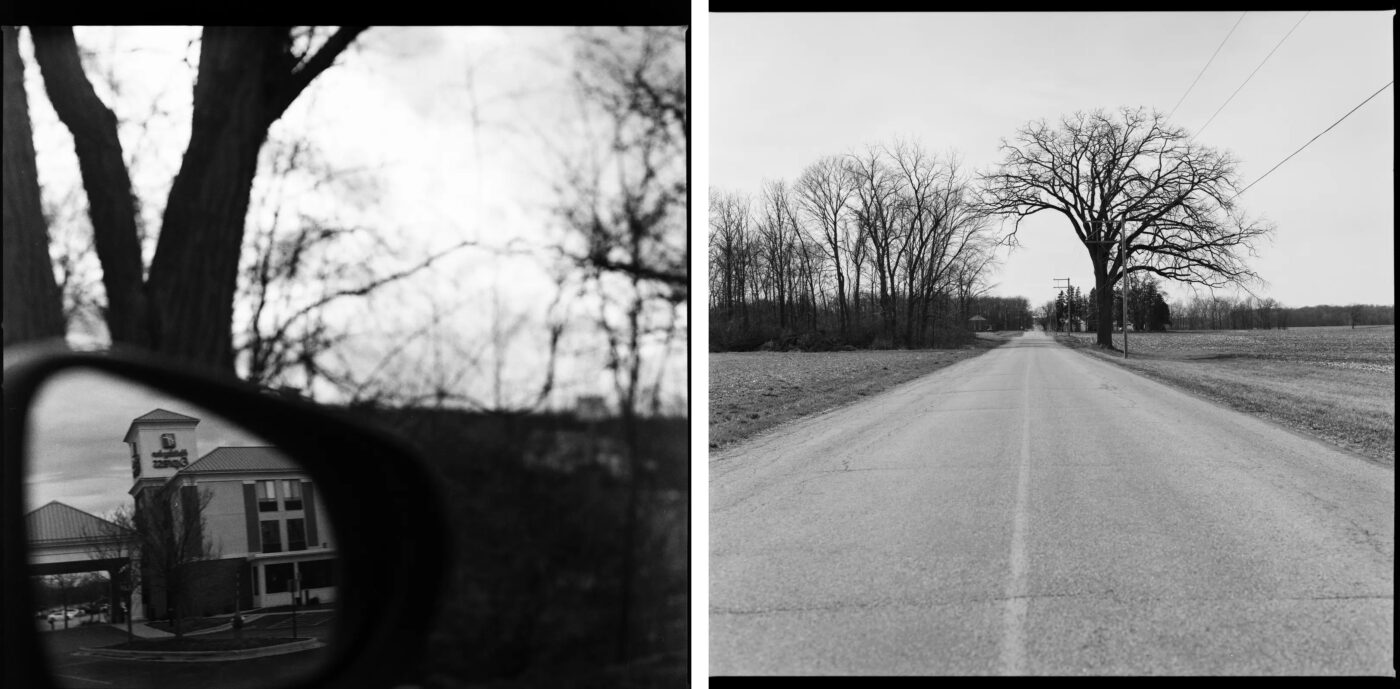
The Bureau of Alcohol, Tobacco, Firearms and Explosives has identified straw purchases as among the most common ways in which guns fall into the wrong hands across the country.
ProPublica’s analysis of straw-purchase cases cited in the Gary suit found that guns obtained unlawfully have been linked to crimes and mayhem throughout the Midwest.
Andrew Thompson, for example, had a clean record, and that made the Fort Wayne, Indiana, resident an ideal middle man for straw purchases. Thompson bought at least 20 guns between 2017 and 2020, several of which were later recovered amid crimes in Chicago, Peoria, Illinois, and as far away as Pennsylvania and Missouri, according to court records. One gun purchased by Thompson was recovered by Kansas City police officers from a suspect who held them at bay in an armed standoff.
Court records show that in at least one case, Thompson, who a federal judge would later sentence to just over five years in prison, offered to include incendiary ammunition as part of a sale to an informant.
Upon impact, the bullet would explode into a ball of “burning magnesium that burns so hot it goes right through bone like butter and it’s burning at up to 3,000 degrees so it can LITERALLY SMOKE SOMEONE,” he wrote to one customer.
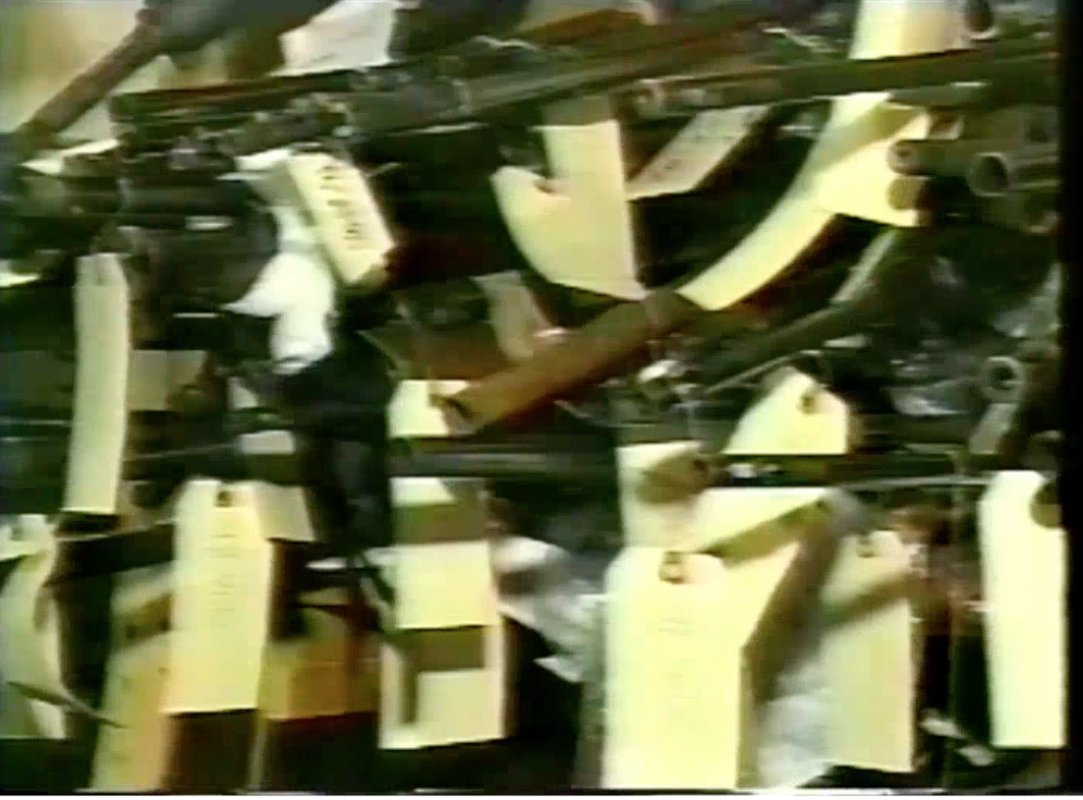
Nearly all of the manufacturers and retailers sued by Gary already have moved to dismiss the case, given the new legislation, leaving the suit’s proponents struggling to determine a way forward.
Even if the case stays alive through a potentially lengthy appeal, the discovery process will once again be on hold. Attorney Philip Bangle of the nonprofit Brady Center to Prevent Gun Violence, which represents the city in the suit, is just as frustrated as Melton by the legislature’s action.
“This is not about the merits of Gary’s case, which have been found valid by the courts no less than three times on appeal,” he said.
In passing the bill, he said, the legislature invited “any person or corporation with ample resources or special interest” to seek legislative intervention to fend off a legal threat.
Bangle said the Brady Center plans to appeal if Gary’s lawsuit is dismissed. But Melton would have to sign off and is not yet ready to commit. Melton said that he needs to weigh what’s in the best interests of the city, along with counsel of the city’s attorneys, and that he would wait to decide until the courts rule.
Meanwhile, across the border, Chicago continues to pursue remedies to gun violence through the courts. Last week, the city filed a lawsuit against gun-maker Glock over the company’s alleged refusal to alter the design of pistols the city claims are being cheaply and easily converted into “machine guns.”
Company officials have not responded to requests for comment.
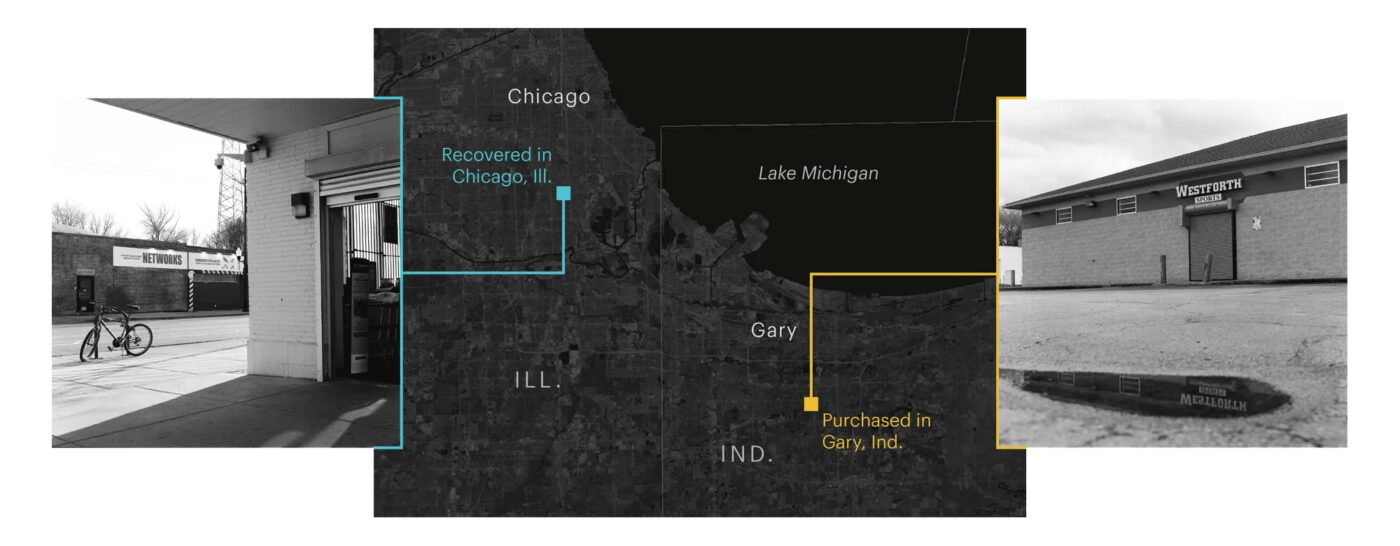
The move follows efforts by the city to revive its lawsuit against Indiana gun retailer Westforth Sports. Owned and operated by the Westforth family for decades, the now-shuttered Gary retailer was the source of hundreds of guns recovered amid investigations by Chicago police. Between 2011 and 2021, federal authorities indicted 53 people on charges related to illegal sales made at the shop, according to a filing in the original suit, which was dismissed by a judge in May 2023. The city appealed the decision later that year.
Timothy Rudd, attorney for Earl Westforth, the now-retired owner of Westforth Sports, said the court “properly dismissed the City of Chicago’s claims against Westforth last spring, and we are confident that the appellate court will uphold that decision.”
He declined to comment on the Gary lawsuit. Westforth was among the stores originally sued by the city and reached an undisclosed settlement. Nonetheless, Gary’s attorneys have continued to seek records from Westforth about its sales history.
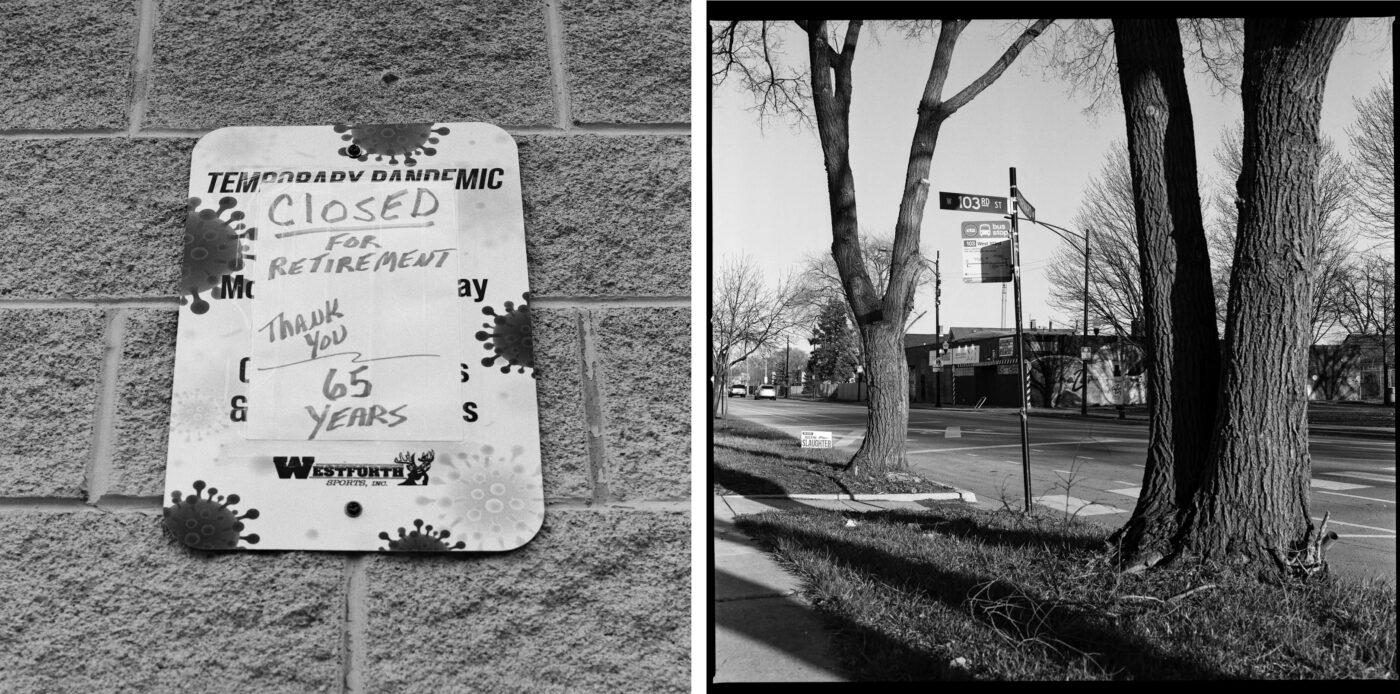
Amid these prolonged court battles, police and prosecutors remain as busy as ever dealing with the aftermath of straw sales occurring in the region. On Feb. 22, as the Indiana Senate had begun its deliberation on the bill barring Gary’s suit, a federal judge sentenced a 25-year-old former school custodian to 18 months in federal prison for charges related to straw purchases. Federal prosecutors accused him of buying at least 19 handguns illegally from Indiana gun retailers over the course of a year.
Most of those guns have been recovered. Five remain missing.

